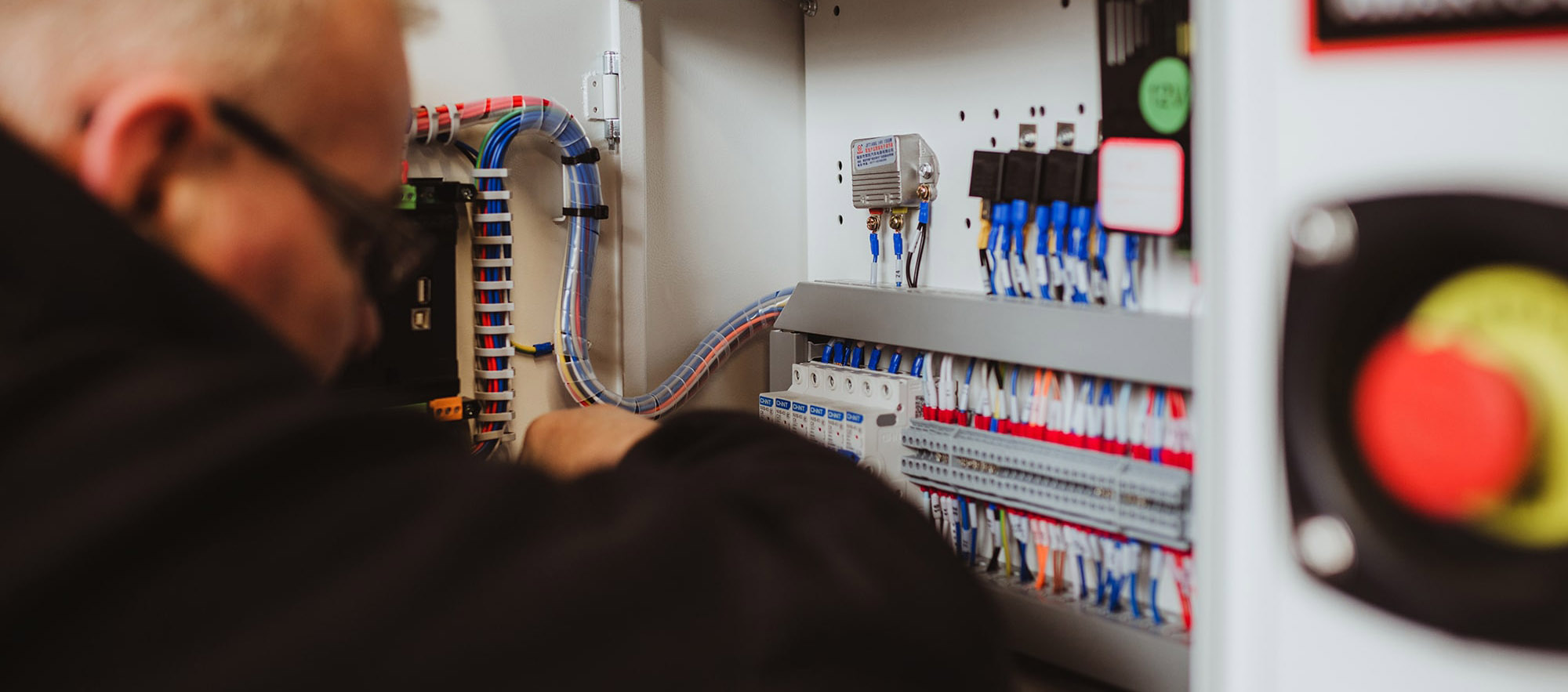Agregat prądotwórczy czy UPS?

When considering the choice between a generator set and a UPS in the context of providing uninterrupted power supply, we encounter several issues that need to be resolved. A generator offers a long-term solution to power outages, while a UPS provides immediate, albeit short-term, support. It becomes crucial to understand how each of these devices works and what their advantages and limitations are. In this article, we will take a closer look at both options to help customers make an informed decision on the best source of additional power for their home or business.
1. What is and how does a generator set work?
2. Why consider a generator set as a source of electricity?
3. Power supply, startup and shutdown of Proton gensets
4. Long operating time
5. Voltage stabilization - protection of equipment from surges
6. What is a UPS and how does it work?
7. Proton 3 Diesel generator set
8. Generator or UPS?
9. We will match the solution to your needs
What is and how does a generator set work?
A generator set is a device powered by fuel (e.g. diesel fuel, as offered by our company), which is converted into mechanical energy by means of an engine. The mechanical energy, in turn, is converted into electrical energy in the generator. In addition to the fuel tank, engine and alternator, among the important components of each generator are the controls that make it possible to control the operation of the generator.
More information: ➡️ Principle of operation of a generator set
The power generators available in our offer include both portable generators with relatively small powers (from 6 to 12kW) and stationary generators with powers of tens, hundreds and even 270kW. Among the smaller generators, customers will find single-phase (230V) units, such as the Proton Oasis 1 Diesel or Proton 1 Plus Diesel, as well as three-phase (400V) units, such as the Proton 3 Diesel or Proton Oasis Plus 360 Diesel (Dual). Stationary generators are exclusively three-phase generators.
However, regardless of power and operating voltage, gensets are designed to work in two functions:
- as a primary power supply in conditions when a building or equipment cannot be supplied from the power grid (e.g., due to the distance from the nearest connection),
- as a backup power supply. Under normal conditions, the facility or device is supplied from the power grid, and the genset is not running. The unit is switched on when there is a power outage from the grid. When the voltage is restored, the genset is turned off.
Why consider a genset as a source of electricity?
Generators offer an efficient power supply solution that works in many emergency situations and where regular power sources are unavailable. They are devices capable of long-term operation, providing electricity when we need it most. Their advantages, such as customizable power and the convenience of automatic start-up, make them a valuable addition to homes, farmers and businesses alike.

In the context of deciding between a generator and UPS, not all features of generators may be equally important. Nevertheless, it is worth paying close attention to a few key aspects of generators that play a decisive role in their effectiveness:
- The method of power supply,
- the start-up and shut-down process,
- the duration of operation,
- the quality of the electricity supplied.
We will discuss these elements in more detail later in the article.
Power supply, startup and shutdown of Proton units
All Proton units are powered by diesel fuel (diesel), as they are equipped with diesel engines, which are characterized by durability, low failure rate and relatively cheap operation.
The gensets can be started manually, or via an automatic switching system (abbreviated as ATS or ATS). Gensets connected to the electrical system, and therefore to the power grid, equipped with ATS, do not require human intervention. They independently detect power outages and start up. Likewise, when the grid voltage returns, they automatically shut down. This is a convenient solution, and starting and shutting down the genset is much faster than with manual operation. However, even the use of ATS does not eliminate some small time delay that occurs between the loss (return) of voltage in the network and the switching on (switching off of the genset).
Check also: ➡️ How does an ATS system work with a generator?
Long operating time
Another important feature is the operating time of the genset in one cycle. Depending on the specific model, Proton gensets can run continuously for 6, 8 or even 24 h. After reaching the maximum operating time, they must be turned off to cool down. The cooling time is a maximum of 60 minutes. After it expires, the chiller can start working again. It is not difficult to see that if the user has access to fuel, the genset can supply the facility or equipment with electricity almost continuously for days.
Voltage stabilization - protecting equipment from surges
The production of electricity in a genset is accompanied by voltage spikes, which is a natural phenomenon. Voltage fluctuations are particularly harmful to electronics that are sensitive to them. Since electronic components are already present in almost every electrical device, we have adopted at Proton as a standard, equipping each of our gensets with a built-in voltage stabilization system (AVR). This ensures that the energy delivered from our gensets is safe in terms of voltage stability, protecting your devices from damage.
Check also: ➡️ Why should you have a generator in your company?
What is a UPS and how does it work?
A UPS, or Uninterruptible Power Supply, is a device that provides continuous power to connected equipment. The UPS is used to protect the power supply to electronics that are sensitive to interruptions, voltage drops and surges. It works as follows:
- When mains power is available, the UPS "passes" power to the devices connected to it, while charging the built-in batteries.
- In the event of a power outage, the UPS automatically switches to power from the built-in batteries, providing electricity to the devices connected to it.
The UPS also often offers surge protection, filtering the mains current and protecting connected devices from potential damage caused by sudden voltage changes. The device works well in applications where there is electronic equipment, and continuity of power supply is a prerequisite for their reliable operation. You can find different types of UPS on the market: from simple devices for home use, to advanced systems for industrial and professional applications.
Why is a UPS also a good source of power?
UPS are devices valued as a power source primarily for their ability to ensure the continuity of operation of electronic devices during a failure or instability of the electrical grid. They allow to safely shut down the devices connected to them, preventing data loss or other negative consequences of a sudden interruption.
Immediate response to power outages is indispensable in environments where even a short power outage can cause serious problems, such as in data centers or hospitals. Although UPS battery life is severely limited, it is usually sufficient to safely shut down systems or survive short power outages.
Generator or UPS?
Both genset and UPS provide power during power outages from the grid, but they differ significantly. Here is a summary of their most important features:
- power: gensets can run for long hours or even days, as long as they have access to fuel. Power from a UPS is limited to the life of the batteries - increasing the capacity of the batteries involves a significant increase in the cost of the investment in the device,
- power: as a rule, generators offer more power than UPS, and this allows them to power more devices or supply power to devices with higher energy requirements,
- location: UPS are devices designed for indoor use. Generators can be used both outdoors and indoors,
- speed of response: UPS operates without time delay, while gensets need some time to turn off and on,
- the level of noise generated: gensets are much louder than UPS, but with appropriately designed enclosures, it is possible to reduce noise to an acceptable level even in a domestic environment.
The choice between a genset and a UPS depends on the specific needs and requirements of the user. Generators are better for long-term power supply in situations where power outages are long or frequent. They are indispensable for powering equipment or facilities located far from the power grid. A UPS, on the other hand, works well when quick response to power outages is most important, and long-term maintenance of equipment is a secondary concern. One of the best applications is the use of both devices, as they perfectly complement each other's functions, creating a kind of synergy in protecting the user from power loss and any problems resulting from it.
Check also: ➡️ Ranking of generators - TOP 5 most popular ones
If a generator set, then only with AVR
As a manufacturer and distributor of generators, we offer devices equipped only with high-end voltage regulators. We know how important for you is the safety of consumers powered by the generator. AVR guarantees stable operation of electronic devices and their protection from damage. Failure of a heat pump, computer or other equipment is not only a considerable cost, but also a risk of data loss. That's why every Proton generator has a suitable AVR voltage regulator.
If you want to learn more about the safety of powering your home, farm or business with a generator, contact our advisor. We are on call for you 24 hours a day, every working day.
